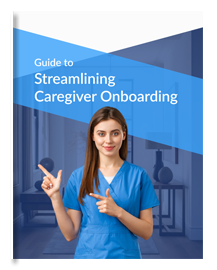In Conversation with Dave Nassaney to Bring His Insights on Combating the Challenges of Family Caregiving
Since 2015, there has been a considerable rise in the number of family caregivers (more than 9.5 million) in the United States. As more and more Americans offer unpaid care for an aging loved one, conversations about family caregivers and the toll of their role are becoming frequent.
Caring for some other person comes with a unique set of barriers and hurdles. While these difficulties can be stressful, overcoming these can be rewarding.
To shed some light on the same, we interviewed a home care industry expert to bring his perspective on family caregiving to light.

Who Did We Interview?
Dave Nassaney is a best-selling author, award-winning speaker, life coach, caregiver supporter, and a syndicated radio talk show host for caregivers who are burned out.
He’s authored three books on caregivers, namely- It’s Your Life, Too (How to Survive and Thrive as a Caregiver), Secrets from the Hammock (Uncommon Wisdom for the Uncommon Times), and One Arm, One Leg, 100 Words (Overcoming Unbelievable Hardships).
Let’s get started with knowing what our expert thinks of the home care industry:
Question 1: What, according to you, should families do when hiring a caregiver for their elderly?
The first thing you should do is get personal referrals from a friend. If that is not possible, then do your research, check for reviews, do a background search, and check for a Facebook page to see what kind of a person this is and if it’s the kind of person you want your loved one to be around.
Question 2: How can caregivers maintain the independence and dignity of the elderly and their families when providing care?
Simply treat them with respect and dignity. The way you would want to be treated if you were an elderly by some younger person who maybe doesn’t have the experience to understand what it’s like to be elderly What would you want? Pretty simple, if you are unsure, find an elderly person and ask them.
Question 3: How can caregivers prevent burnout and manage their work-personal life?
Families and home care providers must avoid caregiver burnout as it may prevent them from providing quality care they might be willing to offer.
To support caregivers in providing excellent care, I use my C.A.R.E. abbreviation.
C- Communicate with your friends, don’t isolate yourself, and don’t use these people to vent upon; find a support group for that purpose, or you won’t have any more friends left because nobody wants to be around someone who is constantly complaining about their loved one or about anything for that matter.
A- Ask for help. Caregivers are notorious for trying to do it all by themselves, they cannot, and to try, is just asking for trouble. You will burn out. Remember to put your oxygen mask on first by taking care of yourself, and having some healthy self-care habits. Ask other people to help with your loved ones, so that you can go and get what YOU need. Go to the gym, ride your bike, hang out with a friend at lunchtime, etc.
R- Rest, caregivers need 8 hours of rest every single night, but the average one only gets 2 to 3. I can’t survive on that, nobody can. If your loved one requires 24/7 care, they should be in a facility. Otherwise, you will burn out, and then you won’t be any good to either your loved one or yourself.
E- Eat healthy food. Don’t eat junk food. Junk food has sugar, chemicals, and processed ingredients. All that stuff will eventually kill you.
These strategies can help caregivers prioritize self-care and maximize quality care for their loved ones.
Question 4: How can I help my aging parents from afar?
If you cannot help from afar, send money to buy the services of a caregiver to give whoever is caring for them a much-needed respite.
This will ensure that your loved ones are well-taken care of from the comforts of their home. Also, it will help you get real-time updates about their health and well-being. A caregiver for the elderly will not only assist with Activities of Daily Living (ADLs) like housekeeping, laundry, and meal preparation, but also offer companionship.
Question 5: What advice do you give to new family caregivers?
Join a caregiver support group, it is very helpful to have people who are also in your position to bounce ideas off of and brainstorm with to find out better ways of doing things that you may not have thought of yourself.
Be patient, don’t be so hard on yourself. Instead, get rid of your perfectionistic tendencies. Take one day at a time, don’t worry about tomorrow, and remember most of all, this too will end one day, it is not a permanent life sentence, it is an opportunity to bless your loved one for a limited period, it goes a lot faster if you enjoy it instead of dreading it.
It’s also a great opportunity to get to know the person you are caring for better and encourage them to take up some of the hobbies they used to have when they were younger. Try music and headphones, try looking at their photo albums together or some of their home movies together, etc.
In Essence
Managing day-to-day responsibilities when caring for a loved one can be daunting. However, the right attitude can help you overcome all the negatives and set your sight straight on the positives.
Our expert, Dave Nassaney, believes that caregivers work in a unique position because they undertake work with intangible advantages that are sure to last a lifetime. Thus, when overwhelmed with caregiving stress, remember to cherish all the benefits caregiving accompanies.
